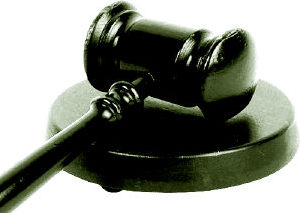 |
Practice shows nearly 75 percent ’success’ rate
One in five South Koreans was found to have either lobbied to get preferential treatment related to criminal and civil lawsuits, or has heard about others lobbying for such treatment.
In a telephone poll, taken by a survey agency Research Plus and commissioned by the Hankyoreh and the Council for the Korean Pact on Anti-Corruption and Transparency. The poll queried 1,000 people over 20 years of age, between July 28 and 31. The poll has a margin of error of plus or minus five percentage points.
Asked whether they had lobbied in relation to civil or criminal lawsuits, 3.2 percent, or 32 people, answered that they had directly been involved in such an experience. One hundred seventy-five respondents, or 17.5 percent, said others they knew had told them about their lobbying efforts.
Of the 207 respondents who said they had lobbied directly or knew someone who had, 152 people, or 73.4 percent, said they think the lobbying efforts worked.
Asked about whether they agreed with the widespread social view that rich people ’do not go to prison’ while poor people do under the same circumstances, 719 people said they agreed, while only 267 disagreed. Among the reasons for continued lobbying-related scandals surrounding prosecutors, judges, and lawyers, 33 percent said South Korea’s judicial system was at fault, calling it ’closed’ and based on legal authorities’ sense of superiority and expertise. 20.3 percent pointed out a lack of a corruption control system in place. A full 76.4 percent of those surveyed considered judicial corruption a chronic problem. Among those surveyed, South Korean society’s overall level of integrity earned an average 4.26 points on a 10-point scale devised by the survey agency, representing the widespread view that Korean society is still closer to corruption than to integrity.





